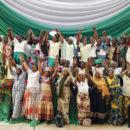A Cross-Border Marketplace of Loyalties
It’s frequently observed that Darfur’s conflict has “spilled over” into Chad and Central African Republic. It is probably more accurate to say that Darfur has become part of a regional nexus of conflict that includes these two countries, characterized by a political pattern in which both local elites (tribal chiefs, militia commanders, small-town political leaders) and followers (especially armed young men) have contingent loyalties, constantly engaged in political bargaining with their actual and potential patrons in Khartoum, Tripoli and (more recently) N’djamena.
Marielle Debos provides an interesting insight into this in her recent short essay, “Porous Borders and Fluid Loyalties.” She illustrates how single individuals have multiple political allegiances through family and kin links, how military entrepreneurs (both leaders and followers) are motivated by financial payoff, and how combatants cycle between different conflict zones. In short, we have a cross-border political game akin to a political marketplace in which loyalties are auctioned to the highest bidder.
Debos argues for an integrated regional approach to stopping this cycle of violence. Programs such as demobilization, disarmament and reintegration need to be designed in a compatible manner across the whole region, which of course also extends into Congo. We also need to attend to the buyers of loyalty who bid up the price and make it attractive for these young men and their leaders to stake their claims by using violence.
In passing, I should note that even the music of violence seems to be susceptible to a market logic. Stephanie McCrummen’s article in the Washington Post entitled “Songs of Hope for Sudan” included a description of the Hakkama, the women praise singers who incite their menfolk to go into battle. Singer and songwriter Abazar Hamid is encourage them to sing for peace instead. He laments, “The main obstacle to reforming the Hakama singers is money. As the Hakama leader, Fatima Osman Ahmed, told him: ‘Many people can pay for war — nobody pays for peace.'”






